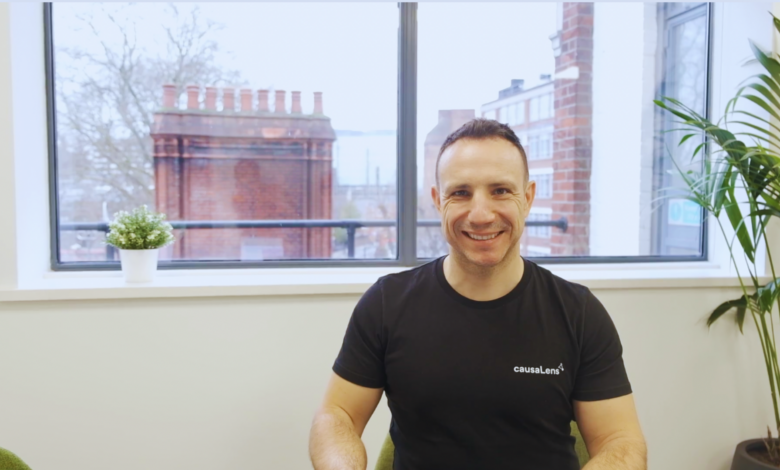
In a significant breakthrough for enterprise AI, London-based causaLens has announced a platform enabling organizations to build their own AI data science teams. The launch comes at a critical moment when enterprises are drowning in data but starving for insights.
The gap between data collection and utilization represents trillions in unrealized value as research suggests that 68% of corporate data is never even looked at. While organizations invest heavily in data infrastructure, most struggle to turn this investment into actionable insights.
A typical data science project takes 3-9 months, requiring multiple iterations between business teams and data scientists. By the time insights are delivered, the market has often moved on.
This bottleneck isn’t just about resources – it’s about speed and scale. Even organizations with large data science teams are finding traditional approaches unsustainable in an era where data doubles every two years.
AI Agents: The New Data Scientists
causaLens’ answer to the challenge is a multi-agent system where specialized AI agents work together, each handling different aspects of the data science workflow. Organizations can build and customize agents tailored to their specific needs, while pre-built agents handle everything from planning and data cleaning to feature engineering and causal analysis.
The platform comes with a suite of specialized agents – a planning agent that creates data science workflow plans, a data cleaning agent that handles preparation tasks, and even a causal agent, CAIA, that can help you estimate causal effects.
“Think of it as giving your organization multiple AI data scientists, each with their own expertise,” explains Darko Matovski, CEO and co-founder of causaLens. “One agent might excel at turning business questions into SQL queries, while another specializes in exploratory data analysis or building applications. These agents work together seamlessly, like a well-coordinated data science team.”
What makes this platform particularly powerful is its flexibility. Organizations can build custom agents tailored to their specific needs and domain expertise. “Every business is unique,” says Matovski. “We’re giving organizations the power to create AI data scientists that understand their specific context, compliance requirements, and business rules.”
Early results demonstrate the platform’s groundbreaking potential. One global enterprise deployed 50,000 custom models in just one week – a task that would traditionally have taken many months.
“What we’re seeing in early deployments is just the beginning, organizations are discovering they can tackle analytical challenges at a scale previously thought impossible while maintaining human oversight of the entire process,” explains Matovski.
Redefining the Role of Human Data Scientists
The impact on data science teams can be profound. Tasks that typically consume up to 80% of a data scientist’s time – like data cleaning and feature engineering – can now be handled by specialized agents.
The role of data scientists themselves is poised to evolve. With more mundane tasks automated, data scientists are elevated to focus on strategic initiatives, model governance, and complex problem-solving that truly requires human creativity and domain expertise.
Darko adds, “It’s about democratizing access to AI capabilities. Whether you’re an analyst exploring data or a business leader making strategic decisions, these agents work alongside you, turning data into insights at speed and scale. The future of decision-making isn’t about replacing human intelligence – it’s about augmenting it at an unprecedented scale.”
Balancing Trust with Automation
“Automation without trust is irrelevant,” emphasizes Matovski, cutting to the heart of AI’s biggest challenge. causaLens has made trust fundamental to their design, weaving it into the fabric of their AI agents through a revolutionary approach that combines causal reasoning, business-specific grounding, and human control.
What sets these agents apart is their ability to learn and adapt to their business context. Through long-term memory, they retain knowledge from every interaction with human data scientists, learning organizational best practices, compliance requirements, and domain-specific approaches.
Perhaps most critically, the platform keeps humans in control. While the multi-agent system can autonomously execute complex workflows, data scientists maintain oversight and can review, adjust, and approve every step. The human data scientist can also change the approach or models the AI data scientists are proposing.
The implications extend beyond business efficiency. As a member of the World Economic Forum’s AI Governance Alliance, Matovski sees this as a step toward more inclusive AI: “We’re creating a future where every organization, from startups to non-profits, can harness the power of data science. This democratization of AI capabilities is crucial for global progress.”
“The timing is significant. Sequoia Capital recently highlighted AI-first applications as a $10 trillion opportunity, predicting that ‘Act Two’ of the AI revolution will focus on delivering real business value beyond technological novelty. In the emerging landscape of AI agents for knowledge work, causaLens is positioned to lead the transformation of data science with agents – one of the most valuable and complex domains.
Find out more about causaLens and AI Data Scientists at causalens.com



